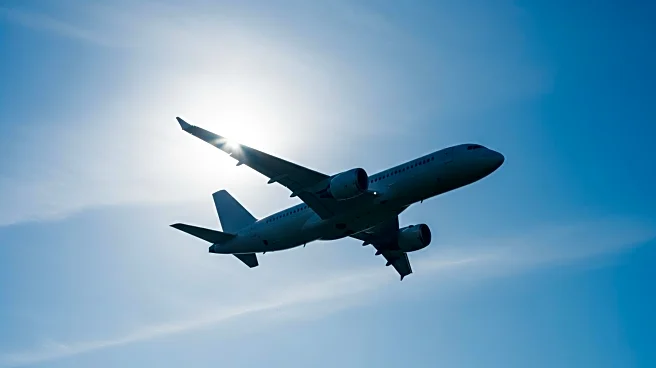What's Happening?
The U.S. Department of Transportation (USDOT) has decided not to proceed with a proposal that would have required airlines to compensate passengers for extended delays. This proposal, introduced by the Biden administration in 2023, aimed to mandate payments ranging from $200 to $775 for delays of three hours or more. Despite the increasing frequency of such delays, the USDOT announced on September 4 that it would withdraw the proposal, aligning with department and administration priorities. While airlines are obligated to refund canceled flights, they are not required to compensate for delays. Credit cards with trip delay insurance offer an alternative, reimbursing expenses like meals and lodging during delays.
Why It's Important?
The withdrawal of the proposal means passengers will continue to face delays without compensation from airlines, potentially affecting consumer satisfaction and trust in air travel. This decision may benefit airlines by reducing operational costs associated with compensating passengers. However, it places more importance on credit card benefits that offer trip delay protection, which can mitigate the financial impact on travelers. The move may also influence future regulatory approaches to consumer rights in the travel industry.
What's Next?
Travelers may increasingly rely on credit cards with trip delay insurance to cover expenses during delays. Airlines might focus on improving operational efficiency to reduce delays and maintain customer satisfaction. The USDOT may explore alternative measures to address consumer concerns about flight delays, potentially revisiting compensation policies in the future.










